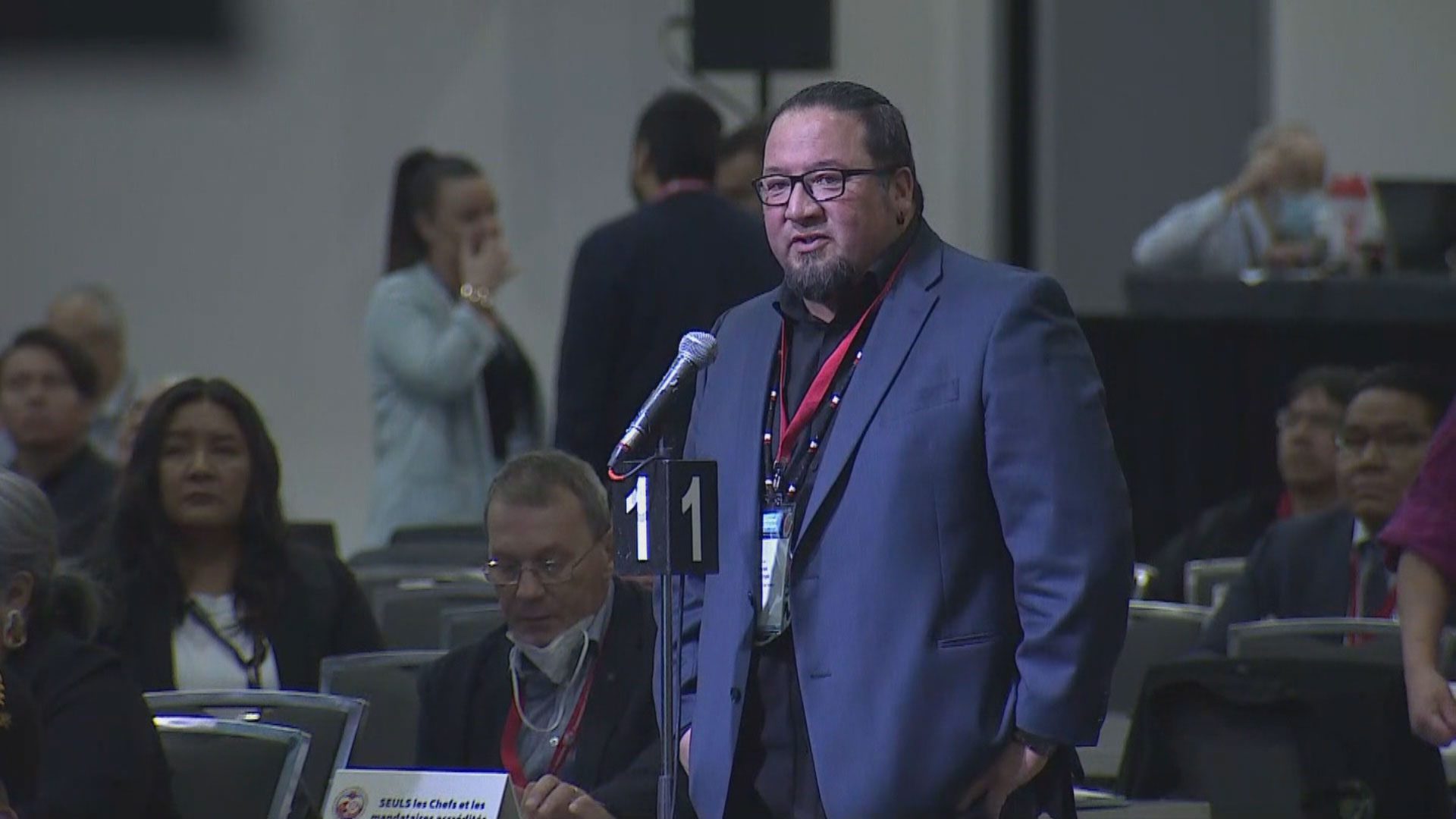Federal Justice Minister David Lametti says that the government’s draft plan for implementing the United Declaration on the Rights of Indigenous Peoples isn’t perfect, final or complete.
“There are a lot of suggestions that have been made recently by various First Nations groups that have yet to be incorporated in and there’s still a lot of dialogue that will continue focussing on the strengths and weaknesses of that draft,” Lametti told a gathering of chiefs at a special meeting in Ottawa on Wednesday hosted by the Assembly of First Nations.
Lametti said the action plan will lay out a roadmap on how Canada’s laws must align with the principles in UNDRIP.
The AFN staged the meeting so chiefs could vote on a batch of draft policy resolutions and debate the proposed action plan that Lametti’s department released last month.
The document seeks to lay out the first steps in Ottawa’s blueprint for aligning Canadian laws with the UN declaration, which affirms the rights of Indigenous Peoples to self-determination and to their language, culture and traditional lands
Such was the goal behind the landmark legislation the federal Liberals passed in 2021, which stipulated that the government must return to Parliament with an implementation plan by this June.
Lametti said that time frame got a green light from former assembly national chief Perry Bellegarde, who during his tenure had pushed Prime Minister Justin Trudeau’s government to pass the bill.
Former NDP MP Romeo Saganash had brought forward similar legislation twice.
His first private member’s bill was defeated in 2014, during the majority mandate of Conservative prime minister Stephen Harper. The second passed in the House of Commons in 2018, but did not make it through the Senate before Parliament was dissolved for the 2019 election.
Canada first endorsed UNDRIP in 2010.
Lametti said Wednesday that finalizing an action plan is just the next step toward implementation, but noted the process to get it right could extend beyond his own lifetime.
The draft contains 101 specific measures that Ottawa pledges to take to better align its actions and laws with the recognition of Indigenous rights.
The steps span across different federal departments, and contain commitments to “include measures to address anti-Indigenous racism” as part of the government’s broader anti-racism strategy and work with Indigenous people to ensure communities “equitably and consistently benefit from natural resource development” on their lands.
Sara Mainville, a lawyer working with the assembly on the issue, told chiefs in a briefing on Tuesday that “there is too much noncommittal language” in the plan. She voiced concerns that it appears to stick with the status quo.
“Canada didn’t do its homework,” she said, echoing criticisms that the plan’s wording is too vague.
Lametti seemed to understand that criticism, emphasizing to the chiefs Wednesday that the next few months will be dedicated to making changes.
“The action plan is a draft,” he said. “It is meant to be the focal point for intense discussion over the next three months.”
He added there will be a lot of dialogue on the document’s strengths and weaknesses, but ultimately, “it is just a draft.”

While much of the talk centered around UNDRIP, Gesgapegiag Chief John Martin is concerned about provincial law – specifically about Quebec’s language law.
“This law has had an impact on our languages,” Martin told Lametti. “Our language is in peril at this moment. Since the French law was implemented around 40 years ago, it’s had a severe impact on our students accessing post secondary education in Quebec.”
Lametti said he’s watching the situation in Quebec carefully.
“We also know we have a responsibility, Bill C-91 (federal government’s language and culture law) is part of it, to protect and promote Indigenous languages. I hope and I think the declaration will give impetus to that in that regard,” said Lametti.
Chief Derek Nepinak from Pine Creek First Nation in Manitoba, is calling for a constitutional conference with first ministers and Indigenous leaders to work out a deal.
“The implementation action plan has to include, in my opinion, the constitutional conference,” said Nepinak. “The first ministers… where real decisions can be made towards what could be a watershed moment in the future relations between Indigenous people in Canada.”
The federal government has until mid-June to table an action plan on UNDRIP. The deadline was agreed upon with former AFN national chief Perry Bellegarde.









